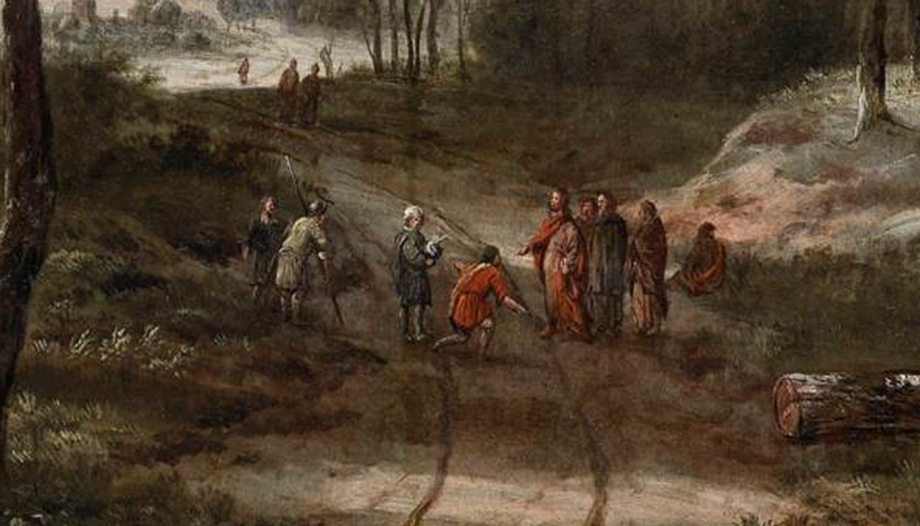Commentary on Sunday readings V
Isaiah, after seeing the Lord, feels lost: "I am lost.I am a man with impure lips". A seraph touches his mouth with an ember:"your guilt is gone, your sin is forgiven". Then listen to the voice of the Lord: "Whom shall I send and who will go for us?". Isaiah launches out with the freedom of love: "Here I am, send me".
Paul recalls the kerygma received at the beginning of the Church: "that Christ died for our sins according to the Scriptures and that He was buried and that He rose again on the third day according to the Scriptures and that He appeared to Cephas and then to the Twelve". Then he appeared to five hundred brothers, to James, to all the apostles. "Finally, as to an abortion, he appeared also to me. For I am the least of the apostles and not worthy to be called an apostle, because I have persecuted the church of God.". Feeling like a sinner is a profound reality in him, but it is linked to the awareness of the gift of grace received: "...".But by God's grace I am what I am, and his grace with me was not in vain. Rather, I have labored more than all of them. Though it was not I, but the grace of God was with me.". These are not words of vanity, but of truth and gratitude. He was a forgiven sinner and, therefore, an apostle.
Peter already knew Jesus. Tiredness and the failure of the night's unsuccessful fishing lead him and his companions to ignore Jesus who speaks to the crowd. Grumpy, they re-dredge the nets. Jesus does not reproach him or say anything to him. He approaches him, gets into his boat and removes him from his isolation by asking him to please help him in his work of preaching, moving a little away from the shore. So that the crowd can hear him better. And so he gets Peter himself to listen to him. After Peter's heart has been filled with the word of God, he can ask him to put out into the deep. And to let down the nets again. Peter trusts. His poverty is open to the word of God who invites him, he does not close himself like the Nazarenes. But he does not believe completely, but only half-heartedly. Jesus said to him: "Cast your nets", in the plural, and he replies "echaré"He leaves his companions and the other boat parked on the shore. He thinks they will be of no use. For this reason, faced with the number of fish in the nets, his heart melts with regret: "Lord, depart from me, for I am a sinner.". Jesus does not reproach him, he does not say to him ".I forgive you"He neither confirms nor denies it, but only says: "....Fear not, from now on, you will be a fisher of men.". This is how Jesus dealt with Peter's sin: "Please help me with your boat; put out into the deep; let down your nets; do not be afraid; you will be a fisher of men.". He did not promise him that he would cease to be a sinner. He knows that even from future sins he will learn to return to Jesus and to the origin of his vocation.
The homily on the readings for Sunday V
The priest Luis Herrera Campo offers its nanomiliaa small one-minute reflection for these readings.









